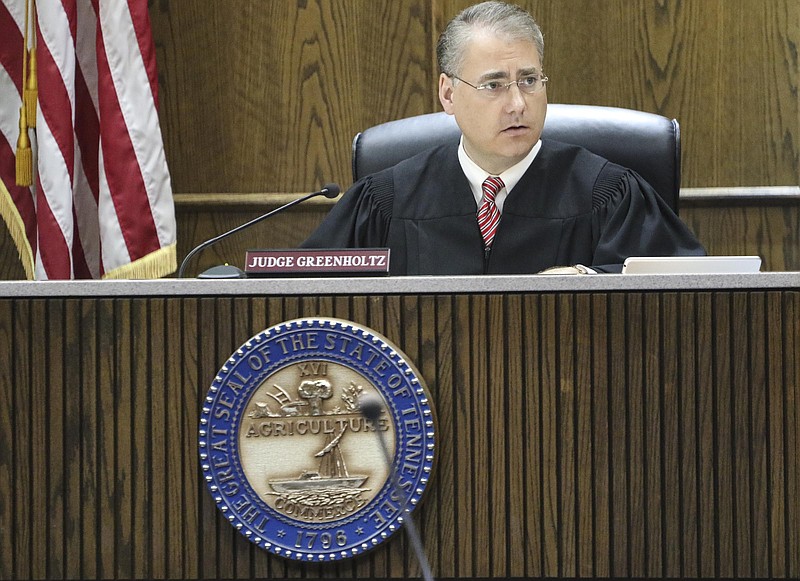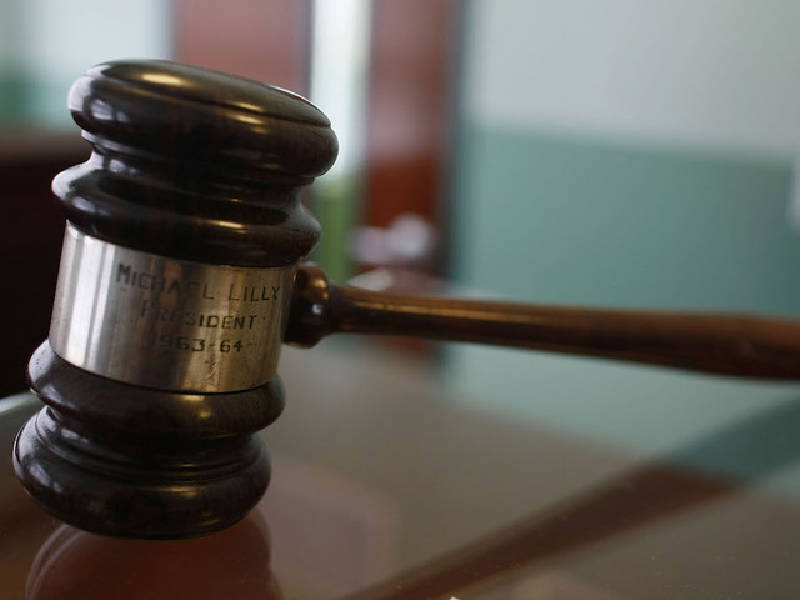
Hamilton County Criminal Court Judge Tom Greenholtz came to our Division II court bench in late 2015 with brand-new eyes for how the court had functioned for decades.
Then he spent a year watching and assessing how our system worked - or, more correctly, how it didn't work.
The father of a slaying victim came back and forth to the courthouse time and again for hearings that didn't occur after they were continued time and time again. By the family's tally, they spent about $400 in parking fees during that time - for a space that cost about $6 a day. On most of those days, that father got to the courtroom only to learn the hearing or trial was passed to another day, he told Times Free Press reporter Zack Peterson.
Defendants, too, were caught in the gerbil wheel of on-again, off-again court schedulings, as snags would arise - snags as defense attorneys and prosecutors got to court and exchanged information on cases that would be heard that day. Maybe a crime lab returned forensic evidence in a murder case, and the defense wanted to arrange a hearing to suppress it. Perhaps a witness died or moved to another state and the prosecution had to re-evaluate the strength of its case.
But Greenholtz - an attorney and arbitrator who wasn't a former state prosecutor as many judges had been - didn't bring with him to the bench the baggage of having "always done it this way."
What he saw - along with the sausage-making of legal negotiations - was the deep frustration of John Q. Public.
"When I came over, it became really apparent that people will sit in the gallery all morning long, and from their perspective, nothing is happening," Greenholtz said in a recent interview.
For 20 years, victims in Tennessee have had the right to confer with a prosecutor about their case, be informed of all court proceedings, and be heard in court during relevant moments such as sentencing hearings. But over and over, cases come up on the docket with nothing new to report and are passed several hours later by an attorney. Family members waiting in the gallery are then being told to return another day.
So in December, after a year of observation from the bench, Greenholtz issued his own version of a "rocket docket" scheduling order for his court cases. During each defendant's first appearance, the judge creates a series of deadlines for motions, evidence disputes and checkup dates. After that, defendants stay off the docket for about three months while attorneys complete the work before each deadline date. Defendants can be put back on the docket anytime to address a legitimate concern, Greenholtz said, but barring that, defendants and witnesses should not be scheduled to appear unless the deadlined attorney and court machinations are completed and ready for a hearing.
Though Greenholtz doesn't draw attention to it, the process is something of a model of what's required from our local federal court benches. There also, during first appearances, deadlines are set for various motions, plea agreements and other legal hurdles.
This is smart. And not just for defendants or victims of crime. It's also smart for prosecutors, defense attorneys, law enforcement authorities and taxpayers. Better organization should result in better lawyering and less waste of police time and our money.
Any case may touch the docket 10 or 11 times a year, Greenholtz said, and each time that involves public employee work and cost: A clerk pulls files, a courtroom officer transports the defendant from the jail, the prosecutor and defense attorney must be there at the same time to make announcements.
"Now it will happen two or three times," the judge said. "And it will happen when there's something for the court to do. So we're reducing the costs, but also the impact to other people in the system whose interests haven't been given full account."
On Monday, Hamilton County district attorney's office spokeswoman Melydia Clewell said "it's too early" to make any generalizations about Judge Greenholtz's changes in his Division II court scheduling. But she added:
"Anything that can be done to make court appearances more productive is certainly welcomed. Every now and then a case will take a life of its own and won't fit well into boundaries no matter how diligent you are with planning and preparation. That said, DA General [Neal] Pinkston is grateful to Judge Greenholtz for attempting to run an efficient docket that provides greater accountability for all involved."
Time will tell, of course, whether the plan that looks good on paper will be good in practice. But we hope - and believe - this one will. It's certainly a good start.
Kudos, Judge Greenholtz.

